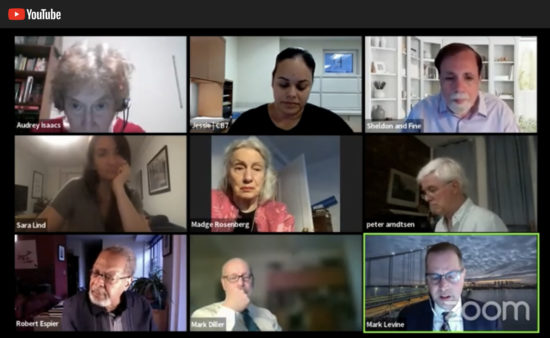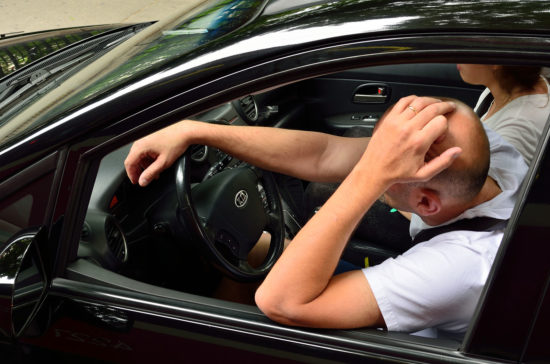By Anna Mejorada
“Over the past two years, there has been an increase in mental health problems in our community and across the city,” said Co-Chair Sheldon Fine at a recent meeting of Community Board 7’s Health & Human Services Committee. “Consequently, there is an urgency for all levels of government to approve programs that support the mental health and wellness of New Yorkers. We cannot allow the status quo to continue.”
Fine then walked the committee through an outline of the resolution they are crafting. Items of significance and urgency include:
- Reverse the closure of inpatient psychiatric beds
- Expand mobile mental health crisis response teams
- Increase crisis stabilization centers
- Build more supportive housing with mental health services
- Embrace and expand the ‘clubhouse model’ of rehabilitation
- Revamp discharge planning for formerly incarcerated New Yorkers
- Increase school-based behavioral health options
- Redirect ThriveNYC funds to address serious mental illness
Jason Hansman, from Mayor Eric Adam’s office, next described existing services to help New Yorkers quickly connect with mental health help, including a new service, in addition to 311 and 911, called NYC Well. Here is when to use each:
311 is accessible via phone, text, or mobile app for non-life threatening issues, including when someone who may be homeless needs support. A street outreach team will assess the situation onsite and offer assistance as well as transportation to housing.
911, via phone or text, should only be used if someone’s life is in imminent danger, or they are in immediate risk of harming themselves or others.
NYC Well is a new service New Yorkers can use to speak with a professional immediately. They are encouraged to call or text when they or someone around them is experiencing an urgent mental health crisis. They will be connected with a counselor who has experience handling mental health issues and, if necessary, can send out a Mobile Crisis Team that can provide behavioral support, de-escalation, assessment, and connection to ongoing care. Services are available in English, Spanish, and Chinese, with interpretation available in additional languages.
Call: 1-888-NYC-Well (692-9355)
Text: WELL to 65173
Chat online: nyc.gov/nycwell
Co-chair Fine shared a personal account of connecting a distraught woman he encountered in the community with NYC Well for assistance dealing with a personal issue. He later ran into the same woman and she expressed gratitude for the help she had received.
Hansman then introduced two successful pilot programs, B-HEARD – The Behavioral Health Emergency Assistance Response Division, and CONNECT – Continuous Engagement between Community and Clinic Treatment .
B-HEARD was created to respond to 911 mental health calls. Currently available within nine precincts, 911 dispatchers are empowered to determine if the situation would benefit from a team of mental health professionals, including EMTs/paramedics. Since launch in November 2021, 20% of 911 calls have been routed to B-HEARD, resulting in fewer hospitalizations. Of those served by B-HEARD, 92% have accepted mental health-related services onsite, with 22% receiving transport to community-based care. In the coming months, B-HEARD will expand to two additional police precincts in the South Bronx. Roll out to precincts within the Upper West Side has yet to be determined. (Source: NYC Mayor’s Office of Community Health.)
CONNECT looks to bridge gaps in the mental health care system, move beyond the traditional clinic role, and be responsive to the root causes of mental health challenges. Currently nine clinic sites in high-need areas throughout The Bronx, Manhattan, and Brooklyn have been identified for this pilot and are accepting referrals.
Additionally, 988, a nationwide Suicide and Crisis Lifeline, is expected to be in place in NYC within the next few months.
Manhattan Borough President Mark Levine also spoke at the meeting, emphasizing the need for more in-school mental health help for students, improved outreach among the homeless community, and an urgent need for more hospital beds devoted to psychiatric care.









A CB7 resolution. That’ll solve the problem.
These CB7 updates are laughable. Engagement without consequence. All theater.
Sheldon Fine put it perfectly, “We cannot allow the status quo to continue.” Would love to think those resolutions will happen but from what we have all witnessed the last 4 years, can we believe it?
Can you also tell us why ThriveNYC funds, almost a BILLION dollars, was NOT directed to the most serious mental illness already? It is this reason the current elected officials should go because they were all in office when that money was allocated & no one fought to redirect the funds. Our UWS is now in complete decline in safety and quality of life.
Thank you, elected officials. You sure have done well looking out for your middle-income taxpayers paying your salaries and all of your pie in the sky initiatives that never work out.
Well. I work for NYC Well. And there are numerous issues: the most seriously mentally ill often do not think they are ill and so only take their medication of closely monitored. Also the medications have serious side effects. So seriously mentally ill people may not want to take the medication.
But. Truly. The biggest prpbl is that the people working woth the seriously mentally ill, ESPECIALLY MCT, are the least experienced. And are paid so little money it is ridiculous. So practinioners who could provide the best guidance – why would they want to work with that population?
I agree with you. Where are the funds going to come from to pay for the services outlined in this CB7 resolution?
ThriveNYC was, by all accounts, a disaster riddled with waste and corruption that accomplished absolutely nothing.
Do these people honestly expect they will be able to “redirect ThriveNYC funds” to pay for these pie in the sky proposals?
How do you reverse the closure of inpatient psychiatric beds? It will surely help a lot as we see many people on the street in dire need of a prolonged hospitalization. However who is going to pay for it? Medicaid? Hospitals are not going to keep anyone without an insurance. As well who is going to decide on the hospitalization duration if a person in need doesn’t want it?
It is way easier said than done. I understand that the steps defined are important but any idea how to achieve them?
Oh perfect. More supportive housing
Increasing the number of psychiatric inpatient beds is dependent upon approval by the NYS DOH. Unless these beds are added to NYC HHC facilities, it’s unlikely that additional beds would be supported by the private health care systems in NYC. Reimbursement of inpatient psych is much less than those of med-surg beds, especially for Medicaid. Hospital systems would much rather use space for reimbursement rich services. Unless Albany is on board with this, this a nowhere proposal.
Yep. Mount Sinai and NY Presbyterian do not hold people with medicaid. City hospitals are a joke. Sad that services dependent on insurance $$$$.
As an employee of H+H, the NYC public hospital system I find it appalling that people cavalierly say that our public hospitals are “a joke.” No one said that when we did the heavy lifting in the pandemic. Our providers are uniformly excellent and we care for the poorest population.
degrading the public hospital system is something rich and entitled people like to do… because they wish it didn’t exist. We can all be thankful that it does.
And yes, we have a huge Behavioral Health (psych) population.
Is this increase due to the pandemic? I’m trying to understand what is happening to all of us. I see a distinct change in everyone’s behavior, including my own, having had to live a year in solitary confinement aka COVID lockdown.
Thank you! I thought I was the only one who compared lockdown to solitary confinement. Pacing back and forth in a studio apartment.
Back to the subject of parking permits for Residence please. How much is this going to cost us? How are they going to decide who actually lives here and deserve these permits? Will there be a limit of parking permits per household? For example I’m a small business owner in contractor that lives on the upper West side I have a personal vehicle and a work van, I often rotate between keeping my personal vehicle on the street in my 3 to 4 block area and my work van, will that still be possible? Many questions…